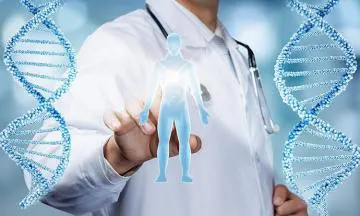

Beyond Blue – Post traumatic stress disorder
Shriya started experiencing post traumatic stress disorder symptoms after her boyfriend died. She suffered extremely vivid flashbacks that could happen at any time, anywhere, and were deeply distressing… She threw herself into another relationship very quickly to try and avoid how she was feeling, but then also would not express much affection to her new partner.
This is just an instance.
Many of us witness or experience a serious illness, an accident, natural disaster, a terrorist activity, sudden death of a loved one, rape or other personal assault, or other traumatic events. With time the grief typically passes, the pain lessons, and life eventually gets back to normal, but some experience severe distress, anxiety, and depression for months or even years. They frequently re-experience the event through intrusive thoughts, upsetting reminders, or nightmares. This is called post traumatic stress disorder, or PTSD.
Watch out for these symptoms
It’s normal to feel the stress, tension, and anxiousness immediately after a traumatic event. But if you feel as though you’ve lost control of your life, that the memory of the event is controlling you, or have several following symptoms of post traumatic stress syndrome for more than a month, you should consult a doctor –
- Recurring thoughts, flashbacks, or nightmares about the event (each person’s experience with flashbacks is unique. Some people have ‘complete’ flashbacks like the example in the opening paragraph of this blog while others may re-experience a feeling, smell, sight or sound from the event without losing touch with the present.)
- Changes in sleep patterns or appetite
- Anxiety and fear, especially when confronted with events or situations that remind you of the trauma
- Feeling ‘on edge’, being easily startled or becoming overly alert
- Crying for no reason, feeling despair and hopelessness or other symptoms of depression
- Memory problems like confusion, lack of concentration, and weak memory
- Disorganized and unable to focus on work or daily activities
- Difficulty making decisions
- Irritability or agitation
- Anger, resentment, or guilt
- Emotional numbness or withdrawal
- Sudden over protectiveness and fear for the safety of loved ones
- Avoidance of the activities, places or even people that remind you of the event
- Other physical health problems like dizziness, stomach upset or less ability to fight off sickness or infection
Post traumatic stress disorder symptoms usually appear about three months after the event but can show up even years later (e.g. death of a loved one). In addition to the physical and psychological symptoms, there is often embarrassment, confusion, and frustration. Often depression, drug or alcohol abuse can show up along with post traumatic stress disorder.
Even though the disorder has very specific symptoms, PTSD is often misunderstood or misdiagnosed. It often places a strain on relationships, as many people will isolate and detach themselves from family, friends, and activities they once enjoyed.
Why do some people develop post traumatic stress disorder and others don’t?
According to the National Institute of Mental Health, individual differences in specific genes or brain areas may set the stage for developing post traumatic stress disorder without causing any symptoms. Childhood trauma, head injury, or a history of mental illness, or other environmental factors may increase the risk by affecting a person’s early brain growth. Also, personality and cognitive factors, such as optimism and the tendency to view challenges positively or negatively, and the availability and use of social support appear to influence how people adjust to traumatic stresses.
Finding help for post traumatic stress disorder
If PTSD symptoms last beyond a few weeks and interfere in daily functioning, seek professional help. Most people who receive treatment for PTSD see significant improvement and enjoy a better quality of life.
A variety of good options for treatment are available, so you can be hopeful that you or a loved one could feel better soon. Effective treatments include cognitive-behavioral therapy (CBT), such as exposure therapy, cognitive therapy, and anxiety management, as well as the medication class of selective SSRIs.
Are you at risk of getting PTSD? Find out with GenoHomeopathy
GenoHomeopathy is a concept that integrates deep biological insights as provided by genetics with the power of homeopathy to deliver you personalized treatment.
The genetic report informs you whether you carry genetic variants which will enhance your risk of having psychiatric disorders like schizophrenia, bipolar disorder, major depressive disorder, and anxiety disorders.
Our doctors personalize a homeopathic treatment based on your test reports to prevent your chances of getting the disease. They combine your personality and genetic factor for scientific and targeted treatment and provide you a healthy lifestyle and dietary change for better treatment results.
No two patients with post traumatic stress disorder are given the same medicines as no two people on this planet have the same genes. What works for you may not be the best choice for someone else. Therefore, your course of treatment is tailored by our doctors to your individual needs.
So, why give stress a chance to further stress you? Gain control over your emotions before you hit rock bottom.
To get the test done, you can book an appointment at our clinics through https://www.drbatras.ae/book-an-appointment



